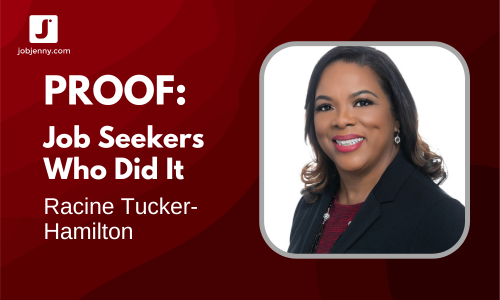Overuse of Capitalization: Or, How to Annoy a Resume Reviewer
I'm looking at a resume right now.
Allow me to share a few things about this particular job seeker:
He's an engineer with expertise in Robot Programming
He enjoys the Manufacturing environment
He frequently interacts with the Sales Team and the Customer
He has worked on some major projects, including Multi-Million Dollar systems
He has experience within the Automotive, Aerospace and Defense industries
He is very good at Project Management, and can take a project from Concept through Installation
He graduated with Honors from his chosen university
He likes Running, Fishing and Travel
I recruit within the manufacturing section. This job seeker has some solid qualifications -- ones that my corporate clients would surely value.
The problem? I can't get past the capitalization errors.
And I know I am not alone. My circle of professional contacts includes dozens of human resources leaders, hiring managers and fellow recruiters. We all agree that grammatical issues (including misuse of capitalization) can be a deal-breaker, even if your skills align with their needs.
And that is a big, stupid bummer.
So if you're a job seeker, do yourself and the world of people reviewing your resume a favor, today.
Take a peek at your resume and ask yourself, "Am I a capitalization overuser?"
If you can tell you are, don't panic. Just please, pretty please, make the corrections before you send even one more out.
If you're not sure, consider a few general rules of capitalization:
The first word in a sentence should be capitalized
Formal names and proper nouns should be capitalized
The months and days of the week should be capitalized
Your university should be capitalized
Your employer and past employers' names should be capitalized
Titles, when before a name, should be capitalized (e.g. "Mayor Joe Bologna"). When they are used as a descriptor after the person's name? They should not be. (e.g. Joe Bologna, the mayor of Pleasantville.) This means if you were working as a field service engineer, no caps
The seasons of the year should not be capitalized.
Geographic or political subdivisions (e.g. "county" or "divisional") should not be capitalized, unless being used in a formal name (e.g. "Westchester County").
Hobbies, unless involving formal names (e.g. "Precious Moments figurine collecting") should not be capitalized (e.g. Running, Fishing and Travel)
Your skills, when described in a sentence, should not be capitalized (again, unless they involve formal names/proper nouns). So, in the instance above? That job seeker above should indicate he has skill in robot programming, project management and within the manufacturing environment (lowercase)
General industry sectors need not be capitalized (e.g. pharmaceutical, food and beverage, automotive, etc.)
You may also wish to confer with The Associated Press style book. Long considered the grammatical bible of journalists and other media types, The AP style book provides hundreds of grammatical rules, examples and guidelines that will help you navigate your way to a spectacular, accurate and consistent looking resumes.
Details matter. Consistency matters. People appreciate a well-written document.
Have that well-written document be yours.
NEED STEP-BY-STEP HELP THROUGH THAT RESUME?
Check out our self-paced video course, Weekend Resume Makeover, which will guide you step-by-step through our proven process of resume development, in no time at all. (The course also includes sample resumes, templates and answers to the questions we hear most often.)
Better yet, you can snag $100 off enrollment with promo code: FAST100.











